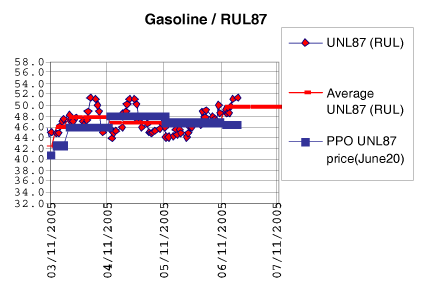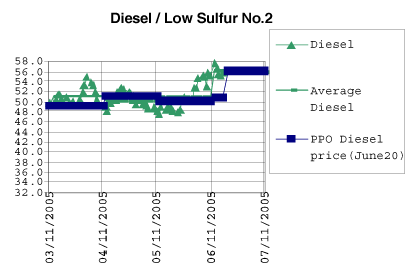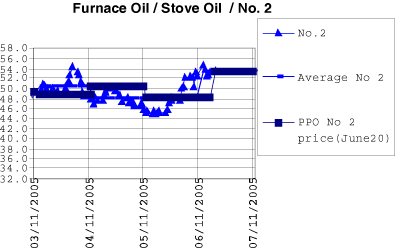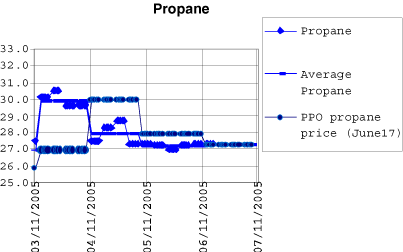|
NLIS 1 June 24, 2005 (Government Services) The following is being distributed at the request of Petroleum Pricing Office: Interruption formula used to adjust maximum gasoline prices Effective 12:01 a.m. Friday, June 24, 2005, the Public Utilities Board�s Petroleum Pricing Office (PPO) will increase the maximum allowable price for all types of gasoline by 3.9 cents per litre (cpl) in Newfoundland and Labrador. With recent commodity market activity for refined fuels, the criteria for the PPO interruption formula (which have been in place since implemented by the former Petroleum Products Pricing Commission [PPPC] in March 2003) have been met for gasoline, as they were recently for distillate products, including furnace/stove oil and diesel fuel. Criteria were not realized for residential propane used for home heating purposes, and there will be no change in price for this product at this time. "Speculation and underlying fear of future supply disruptions continue to influence the community of fuel traders and hence, the market-pricing behaviour of refined petroleum products," noted David Toms, PPO director (acting). "At the same time the market is dealing with the expected increased seasonal demand for gasoline, we are seeing unprecedented prices for refined fuels being forced up because of concerns regarding future global supply. This is unfortunately creating record-setting prices in this province, as it is elsewhere, and the trending of prices is contributing to an unsettled market." BACKGROUNDER The market-pricing behaviour for refined products has escalated in recent weeks for a number of reasons, including:
PPO benchmarks are established based on the average prices of refined products in the period since the last time maximum prices were established. The PPO regularly sets maximum fuel prices on the 15th of each month. For the interruption formula to be used on gasoline and distillate fuels, the PPO requires the average of market prices to be 3.5 cpl greater or less than the current PPO benchmark prices (except propane, which requires +/- 5.0 cpl) over five market business days. Illustrated in the following graphs is the market-price performance of gasoline, as well as other products regulated by the PPO, for recent pricing periods up to June 20, 2005:
|








